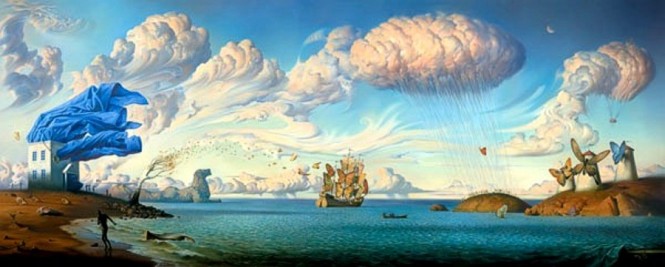Knowing is equated with seeing. If you see the light, it could mean that you see a light blinking on a radio tower or it could mean that you know something that makes you see everything different or it could mean both.
Philosophy is equated with thinking. Religion is equated with feeling. Today, like the physicist David Bohm, “we hold several points of view, in a sort of active suspension” (Dialogue). Like poet William Blake—”To see a World in a Grain of Sand, And a Heaven in a Wild Flower“—and like philosophers Søren Kierkegaard—we see the ‘eternal in the temporal’—and Ludwig Wittgenstein we say, “how extraordinary that anything should exist” (Lecture on Ethics).

Today we feel stoic acceptance of what the world throws at us. We say like Wittgenstein, “I am safe, nothing can injure me whatever happens” (Lecture on Ethics). With a “Click!” we connect to an awareness that leaves us feeling strangely lighthearted, for no apparent reason.
This feeling could best be described as “Self Actualization” as psychologist Abraham Maslow described, or as an “oceanic feeling” of limitlessness and oneness with the entire human race and universe as the mystic Romain Rolland described or it could be just one of those things: “What’s for supper?”
Today we go from a narrow self-centred perspective to a wider view of the world in its totality. We are ‘disturbed by joy’ like William Wordsworth was a few miles above Tintern Abbey:
“…I have felt a presence that disturbs me with joy
Of elevated thoughts; a sense sublime
Of something far more deeply interfused,
Whose dwelling is the light of suns,
and the round ocean and the living air,
and the blue sky, and in the mind of man” (source)

Religious belief and the lack thereof could be understood not as rival theories but as different ways of seeing. If a believer and an atheist look at a picture and one says it’s hideous and the other says it’s lovely, who’s right? who’s wrong?

Wittgenstein saw religion not as theoretical but as a “collection of pictures” reinforcing rules of life in the form of morality and a way of living that is itself what is eternal (Culture and Value, 1980). If someone taps into that eternal by living its ideal, one is living and being the eternal for a time like a leaf on a tree that is seasonal.
The world is factual. Facts are identifiable by science but facts can’t answer why you are here.
Like Wittgenstein said, “We feel that even if all possible scientific questions be answered, the problems of life have still not been touched” (Lecture on Ethics).
The philosopher Jean-Paul Sarte concluded in The Transcendence of the Ego that, “The World has not created the me: the me has not created the World” (p.105) but these two things are connected in a consciousness that is spontaneous. Sarte wrote, “Consciousness is always ‘of something‘, and therefore defined in relation to something else. It has no nature beyond this and is thus completely translucent” (source).

Some people picture a soul as translucent, as a kind of a ‘thing’—but not Wittgenstein. He said that if you look at soul language in religion, soul is not pictured as a thing but as integrity which is equally invisible. So if someone says, “He sold his soul for money” or “He sold his soul to the devil” it really means that he’s become materialistic. He has no deep moral sense and moral sense, as we know, is not visible.
A man may have everything but feel horribly afraid of what’s coming. A good man, however, enjoying a good way—tried, true and eternal through himself and those who live after—why, he has nothing to fear. Ever.
No matter what.
He can be light as a feather. He is not chained by anything material. He can never be judged as having lived a futile life even if he dies poor and unknown and didn’t do very much. After all, what does a sparrow do? What are flamingos for?

According to Maslow’s Hierarchy of Needs, a person can’t get to the highest level of “self-actualization” without making it by lower level needs such as food, sex and security.
To be self-actualized is to be unafraid of the unknown, untroubled by ambiguity and triviality, self-aware, accepting weaknesses while developing strengths, living a “meaningful life” by having a purpose that goes above and beyond one’s self to a greater good (see: Self Actual).

If you were asked, “Do you understand the difference between thinking and being?” what would you say?
Understanding the difference between thinking and being is like when police catch someone in the act of a crime and say, “What do you think you’re doing!” which is another way of saying, “How stupid are you?”
This is the exact moment when the cop and the criminal give their collective heads a shake. Most people (most of the time) see the world from inside a self-enclosed bubble of preoccupied thoughts that shape how the world is perceived. But this way of seeing is limiting because it sees a world perceived through language and opinion.
When a person with soul (and a clear conscience, if possible) wakes up, looks around and says full of happiness, “This is a miracle!” he isn’t just describing an event. It’s really his reaction to something significant that he is being, becoming and enjoying.

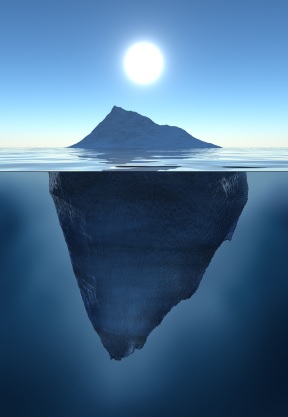 The battle goes on beneath the surface of consciousness. That’s why you sometimes say, “Why did I do that? Did I say that? That wasn’t me.” Like everybody, you’re under a misconception. You think you know what influences you and how those influences affect you.
The battle goes on beneath the surface of consciousness. That’s why you sometimes say, “Why did I do that? Did I say that? That wasn’t me.” Like everybody, you’re under a misconception. You think you know what influences you and how those influences affect you.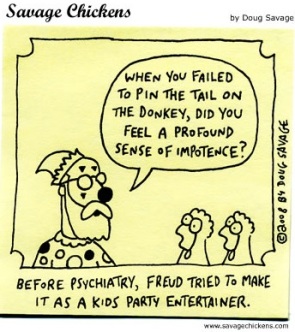 First you have a feeling, then you make up something to explain that feeling. The explanation becomes a label. The label is declared true. It influences you. You become a self-fulfilling prophecy primed by what you do.
First you have a feeling, then you make up something to explain that feeling. The explanation becomes a label. The label is declared true. It influences you. You become a self-fulfilling prophecy primed by what you do.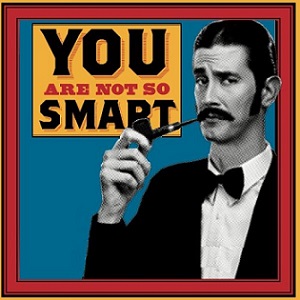 But it isn’t.
But it isn’t.
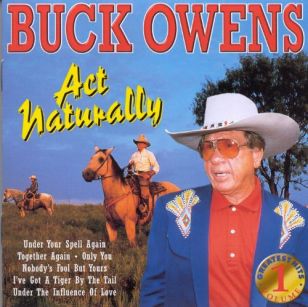
 There’s nothing you must do. There’s no mountain you must climb. Success and failure don’t matter. Just contentment. Contentment is not death! Contentment is bliss! In dictionaries contentment and happiness are interchangeable.
There’s nothing you must do. There’s no mountain you must climb. Success and failure don’t matter. Just contentment. Contentment is not death! Contentment is bliss! In dictionaries contentment and happiness are interchangeable. It’s all in how you frame it. What’s your spin on things? How do you see yourself? Is life bliss-filled or disasterous? You decide. You choose. It’s simple really. Nothing to it. Live a pleasant life by living wisely, justly and well (Epicurus). And yet, living a pleasant life can be difficult when you’re with a species hell-bent on making the earth a landfill.
It’s all in how you frame it. What’s your spin on things? How do you see yourself? Is life bliss-filled or disasterous? You decide. You choose. It’s simple really. Nothing to it. Live a pleasant life by living wisely, justly and well (Epicurus). And yet, living a pleasant life can be difficult when you’re with a species hell-bent on making the earth a landfill.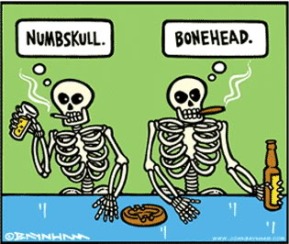 In 1982 when Alice Cooper (aka Vinnie Furnier) sang, “We’re all clones. All are one and one are all” (
In 1982 when Alice Cooper (aka Vinnie Furnier) sang, “We’re all clones. All are one and one are all” (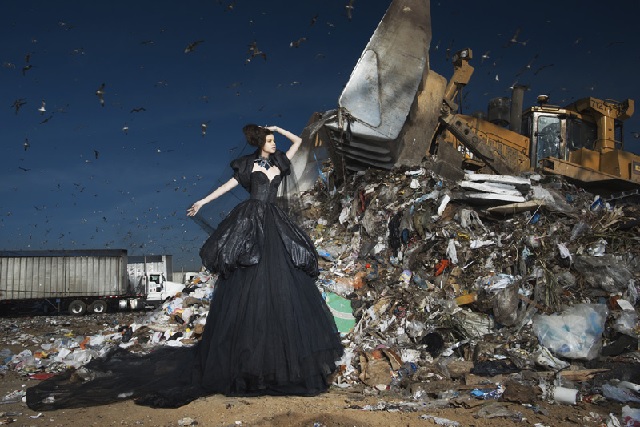
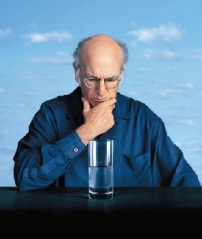 Framing is a bias towards a given choice depending how it’s presented. It’s how the cover of a book influences your judgement. Framing moves you to react in certain ways based on how your brain makes comparisons between loss/gain, good/bad, half-full/half-empty. In framing you decide what’s important.
Framing is a bias towards a given choice depending how it’s presented. It’s how the cover of a book influences your judgement. Framing moves you to react in certain ways based on how your brain makes comparisons between loss/gain, good/bad, half-full/half-empty. In framing you decide what’s important.
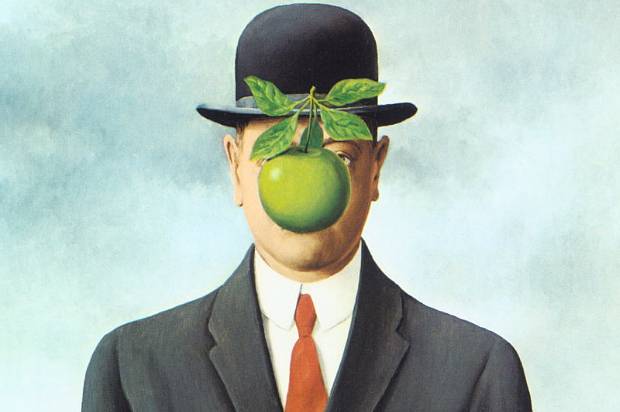
 “Transcend” comes from Latin trans-, meaning “beyond,” and scandare, meaning “to climb” (
“Transcend” comes from Latin trans-, meaning “beyond,” and scandare, meaning “to climb” (
 1) It’s silly. You can enjoy yourself sometimes and on occasion, but every day? Even billionaires have bad days.
1) It’s silly. You can enjoy yourself sometimes and on occasion, but every day? Even billionaires have bad days.


 The trick is to combine seeing, smelling, hearing, tasting and touching without preconceived notions of who you think you are as an object (
The trick is to combine seeing, smelling, hearing, tasting and touching without preconceived notions of who you think you are as an object (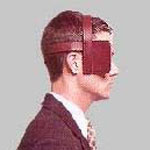 In this philosophy there is nothing to believe. It’s all an experience. It’s a matter of taking off blinders. You can enjoy every day better than any billionaire burdened by big stuff. All it takes is a shift in perspective from what you look at to what you look from.
In this philosophy there is nothing to believe. It’s all an experience. It’s a matter of taking off blinders. You can enjoy every day better than any billionaire burdened by big stuff. All it takes is a shift in perspective from what you look at to what you look from.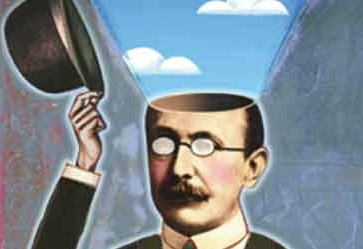 Let’s say you’re washing dishes. While your hands work, you see a sunbeam shine on the table, you see a brown leaf blown across bricks out the window, you hear a distant train. Such contemplation of smell, sight and sound occupies about three-quarters of our life while action occupies about a quarter of conscious awareness.
Let’s say you’re washing dishes. While your hands work, you see a sunbeam shine on the table, you see a brown leaf blown across bricks out the window, you hear a distant train. Such contemplation of smell, sight and sound occupies about three-quarters of our life while action occupies about a quarter of conscious awareness. In “
In “
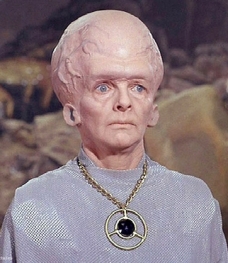 Big wrinkly brains. Amazing. Good to know.
Big wrinkly brains. Amazing. Good to know.  To master the joy of living takes grit, spit and a whole lotta duct tape. It takes a conscious effort (and a nonconscious one too).
To master the joy of living takes grit, spit and a whole lotta duct tape. It takes a conscious effort (and a nonconscious one too).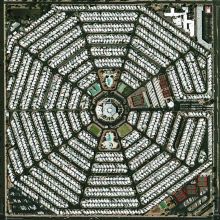

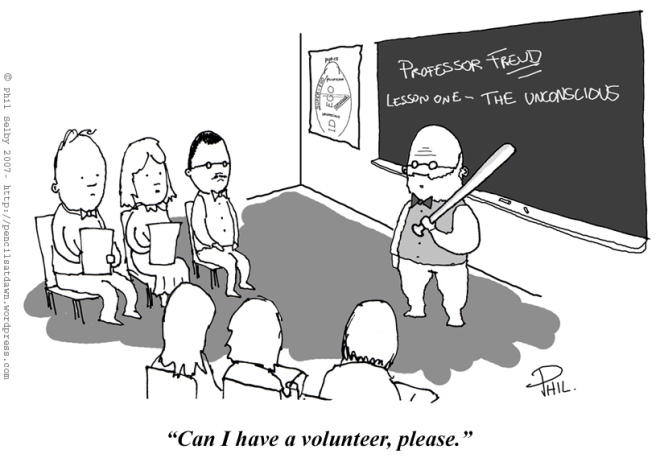 The challenge posed by a Philosophy of Enjoyment is to enjoy life, but living on a planet without forests, song birds, tigers and water might not be as enjoyable as it sounds.
The challenge posed by a Philosophy of Enjoyment is to enjoy life, but living on a planet without forests, song birds, tigers and water might not be as enjoyable as it sounds.
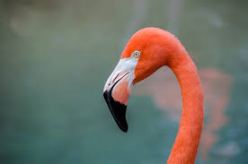 Maybe it’s the flamingos.
Maybe it’s the flamingos.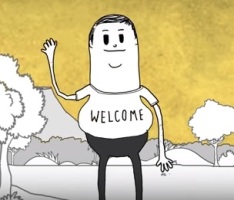 In “
In “
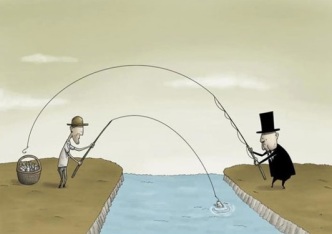
 Forbes is a money man magazine with a bad ass financial plan. Its advice to create the exact life we want assumes we want the fool’s gold of a spacious loft in the city with a view of the park.
Forbes is a money man magazine with a bad ass financial plan. Its advice to create the exact life we want assumes we want the fool’s gold of a spacious loft in the city with a view of the park.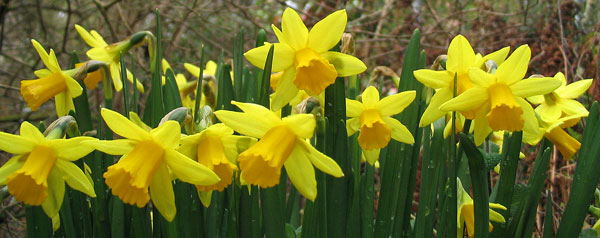
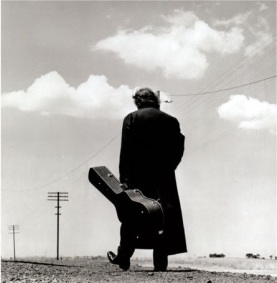 And who are you? You are the line. Enjoy it. You walk the line between life and death, and love and hate. The trick to it is to walk that line one step at a time with a kind heart valuing wisdom, reason, nature, beauty, harmony, humour, friendship and love – you know: the good stuff.
And who are you? You are the line. Enjoy it. You walk the line between life and death, and love and hate. The trick to it is to walk that line one step at a time with a kind heart valuing wisdom, reason, nature, beauty, harmony, humour, friendship and love – you know: the good stuff. While he was scuba diving Black probably did lose his mind, not to madness, but to a beautiful feeling when there’s nothing in it but the beauty of being in the beauty of what’s all around. When inner talk runs between wanting and not-wanting, and liking and disliking is stopped—particularly in a natural setting—we can feel aware of beauty in the outside world and enjoy it like nothing else.
While he was scuba diving Black probably did lose his mind, not to madness, but to a beautiful feeling when there’s nothing in it but the beauty of being in the beauty of what’s all around. When inner talk runs between wanting and not-wanting, and liking and disliking is stopped—particularly in a natural setting—we can feel aware of beauty in the outside world and enjoy it like nothing else. 

 Enjoyment can be conscious – as in, you consciously choose to read this – or unconscious – as in, you feel something without knowing why.
Enjoyment can be conscious – as in, you consciously choose to read this – or unconscious – as in, you feel something without knowing why.

 When you enjoy, you become as a poet.
When you enjoy, you become as a poet.



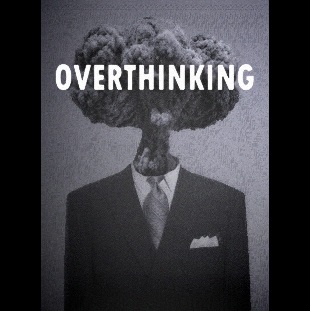 You see, it’s because of our brains. We either over-think and make it complicated, we under-think and act on insane urges or we multi-task and miss everything.
You see, it’s because of our brains. We either over-think and make it complicated, we under-think and act on insane urges or we multi-task and miss everything.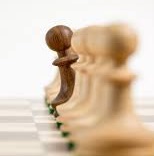 Our brains send messages. Sometimes these messages are destructive—ask anyone in therapy, rehab, prison or who is about to blow himself up. Not only do we deceive ourselves, other people trick us with their deceptions and w can become like pawns in the game of life, sacrificed for someone else’s idea of enjoyment.
Our brains send messages. Sometimes these messages are destructive—ask anyone in therapy, rehab, prison or who is about to blow himself up. Not only do we deceive ourselves, other people trick us with their deceptions and w can become like pawns in the game of life, sacrificed for someone else’s idea of enjoyment. Picture brain messages symbolically like they do in cartoons with a devil-you and an angel-you on each shoulder arguing their case for you to decide (see
Picture brain messages symbolically like they do in cartoons with a devil-you and an angel-you on each shoulder arguing their case for you to decide (see  On one side are symbols of light, innocence and wholesomeness (sappy?) and on the other, just the opposite (exciting?). In the battle between it comes down to focus. What do you choose to enjoy?
On one side are symbols of light, innocence and wholesomeness (sappy?) and on the other, just the opposite (exciting?). In the battle between it comes down to focus. What do you choose to enjoy? Do you take the gentle path of life as represented in Wordsworth’s poem, “I wandered lonely as a cloud; That floats on high o’er vales and hills; When all at once I saw a crowd; A host, of golden daffodils“? Or is that boring? “
Do you take the gentle path of life as represented in Wordsworth’s poem, “I wandered lonely as a cloud; That floats on high o’er vales and hills; When all at once I saw a crowd; A host, of golden daffodils“? Or is that boring? “ Do you prefer your entertainment on the excitingly evil side? How about delightful depravity and edgy cruelty that’s funny too? What’s your pleasure? Do you choose a quiet read, a walk in the park, a pint with a friend, or ‘gorified’ death in a Zombie Apocalypse?
Do you prefer your entertainment on the excitingly evil side? How about delightful depravity and edgy cruelty that’s funny too? What’s your pleasure? Do you choose a quiet read, a walk in the park, a pint with a friend, or ‘gorified’ death in a Zombie Apocalypse? Wholesome isn’t a word used much these days. It alludes to marketing all-natural breakfast cereals and family values but back in the year 1200 wholesome meant “of benefit to the soul.” It comes from the word “whole” meaning “healthy” (undamaged, entire, safe) and “-some” meaning “tending to” (
Wholesome isn’t a word used much these days. It alludes to marketing all-natural breakfast cereals and family values but back in the year 1200 wholesome meant “of benefit to the soul.” It comes from the word “whole” meaning “healthy” (undamaged, entire, safe) and “-some” meaning “tending to” (


 Let’s get trippy (hippy talk for cool, freaky and groovy). Rather than think of your life in practical terms with all its aches, pains and frustrations, perceive the enjoyment of your life as somewhere between the eternal (not ending) and temporal (ending). It’s easy, just perceive life from multiple vantage points.
Let’s get trippy (hippy talk for cool, freaky and groovy). Rather than think of your life in practical terms with all its aches, pains and frustrations, perceive the enjoyment of your life as somewhere between the eternal (not ending) and temporal (ending). It’s easy, just perceive life from multiple vantage points.